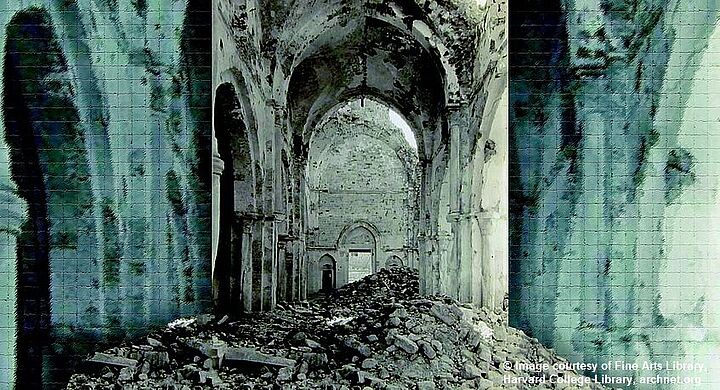Mittwoch, 20. November 2024, 17:00 - 18:30 iCal
Ringvorlesung Turkologie Wintersemester 2024/25
Cultural Heritage in the Middle East and Central Asia: Conservation and Destruction
October 9th, 2024 - January 22th, 2025, 5PM - 6:30PM
Institut für Orientalistik, Hörsaal
Spitalgasse 2, Hof 4.1 (Campus Universität Wien), A-1090 Wien
Hybrider Event (an einem physischen Ort und online)
Lessons in Laundering Violence: Postimperial Memories of Interimperial Conflict in Istanbul and Vienna
Jeremy F. Walton (University of Rijeka)
As sites of privileged, authoritative memory, museums are crucibles for post-imperial memories. In this presentation, I consider two imperial war museums, Vienna’s Heeresgeschictliches Museum and Istanbul’s Harbiye Military Museum, in order to examine how interimperial violence in the past is curated in the present. Crucially, these two museums can be theorized as dialogic partners in postimperial commemoration. For much of their history, the Habsburg and Ottoman Empires were antagonists, yet they came to a common end as defeated allies in the Great War. My exposition focuses on the semiotics of interimperial enmity and postimperial national identity in each museum. In the Heeresgeschictliches Museum, depictions of the Ottoman Sieges of Vienna (1529 and 1683) and looted Ottoman military paraphernalia constitute the difficult heritage of interimperial antagonism, one that intersects with controversies over the accusations of the museum’s “historical revisionism” in relation to the legacies of the Wehrmacht and the Nazi era. In Istanbul’s Harbiye Museum, Ottoman military triumphs are yoked to an overarching narrative of Turkish ethno-national ascendancy, which rewrites imperial military campaigns as episodes in the prehistory of the militarized nation. Most importantly, both museums balance a romance of former interimperial military conflicts with the imperative of international peace today. Accordingly, the heritagization of both Habsburg and Ottoman legacies is a crucial means to laundering violent pasts for postimperial ends.
Bio
Jeremy F. Walton is a cultural anthropologist whose research resides at the intersection of memory studies, urban studies, the comparative study of empires and imperialism, and critical perspectives on materiality. He recently inaugurated the research group “REVENANT—Revivals of Empire: Nostalgia, Amnesia, Tribulation” at the University of Rijeka, Croatia, with support from a European Research Council consolidator grant (#10100290). Prior to this, he led the Max Planck Research Group, “Empires of Memory: The Cultural Politics of Historicity in Former Habsburg and Ottoman Cities,” at the Max Planck Institute for the Study of Religious and Ethnic Diversity in Göttingen, Germany. Dr. Walton’s first book, Muslim Civil Society and the Politics of Religious Freedom in Turkey (Oxford University Press, 2017), is an ethnography of Muslim NGOs, state institutions, and secularism in contemporary Turkey. His writing has appeared in a plethora of scholarly and popular journals, including American Ethnologist, Die Welt Des Islams, History and Anthropology, The Journal of the Ottoman and Turkish Studies Association, Jadaliyya, and Sidecar (The New Left Review).
Zur Webseite der Veranstaltung
Veranstalter
Kontakt
Ayse Dilsiz Hartmuth
Institut für Orientalistik
+43-1-4277-43405
ayse.dilsiz.hartmuth@univie.ac.at
Erstellt am Donnerstag, 19. September 2024, 11:59
Letzte Änderung am Mittwoch, 23. Oktober 2024, 10:27

